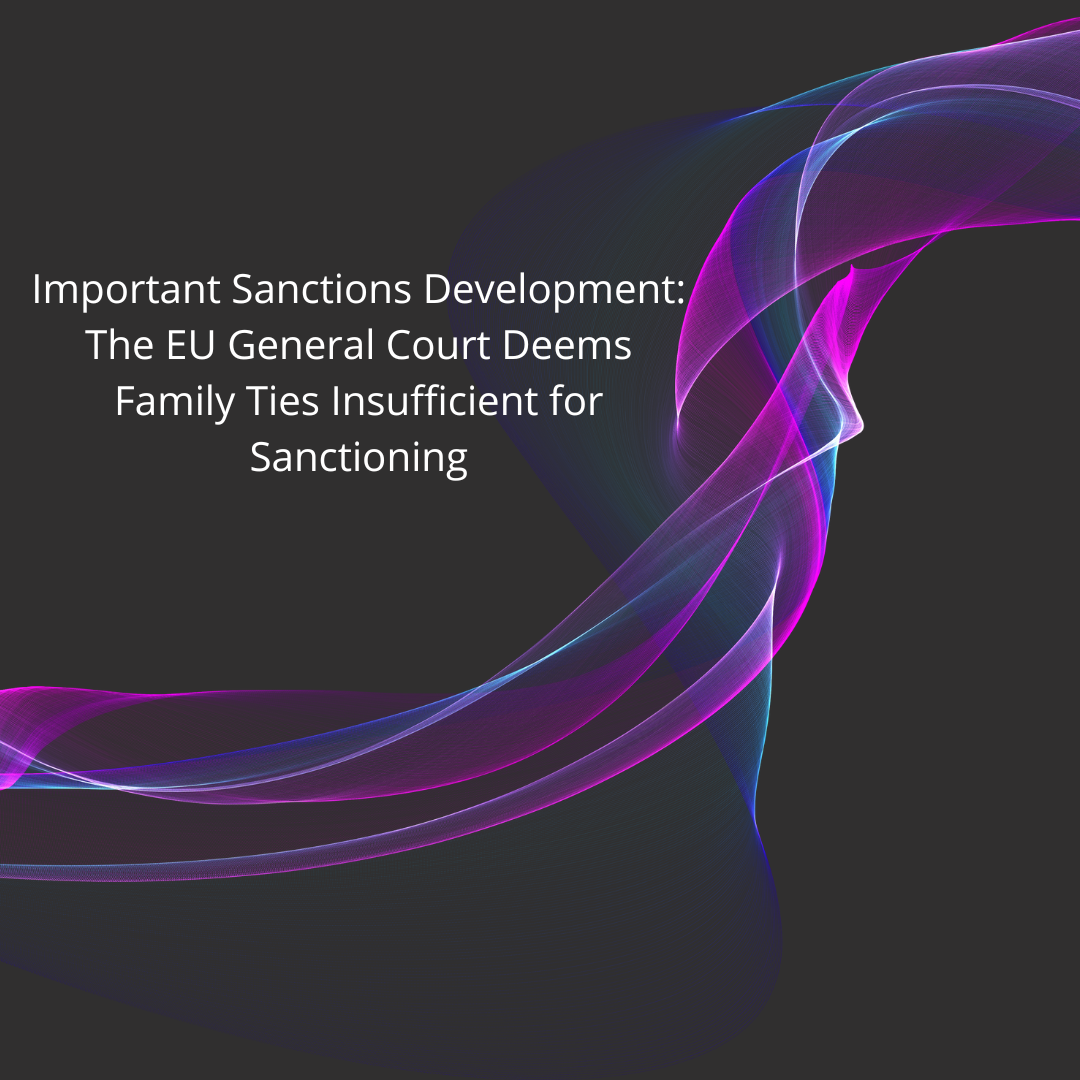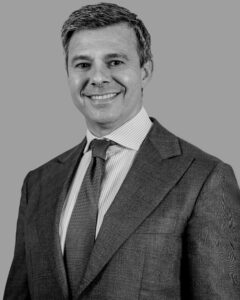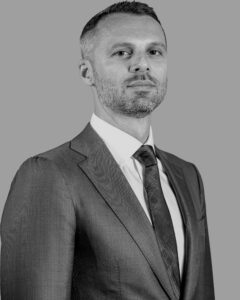We have the pleasure to announce that Mr. Nikita Dmitrievich Mazepin has obtained a great victory before the Court of Justice of the European Union!
TA Advisory had the honor of being part of the team defending Mr. Mazepin’s interests regarding his maintaining on the EU sanctions list. In what follows, we will review the facts of the case (I), before analyzing the reasoning of the Court of justice of the European Union (II).
1. A reminder of the facts
In his appeal, the applicant sought:
The annulment of the letter dated 15 September 2022, by which the Council of the European Union decided to maintain his name on the list of persons subject to the restrictive measures provided for in Council Decision 2014/145/CFSP of 17 March 2014, concerning restrictive measures with regard to actions endangering or threatening the territorial integrity, sovereignty or independence of Ukraine ;
The annulment of the letter of 14 March 2023, by which the Council of the European Union decided to maintain his name on the list of persons subject to the restrictive measures provided for in Decision 2014/145 of the Council of the European Union, concerning restrictive measures with regard to actions endangering or threatening the territorial integrity, sovereignty and independence of Ukraine ;
And the annulment of the letter dated 15 September 2023, by which the Council of the European Union decided to maintain his name on the list of persons subject to the restrictive measures provided for in Council Decision 2014/145.
Indeed, in the decision of 15 September 2022, it emerged that the applicant was retained on the list of sanctioned persons on the additional ground that “[The applicant] is the son of Dmitry Arkadievich Mazepin, former General Manager of JSC UCC Uralchem. Until March 2022, he was a racing driver for the Haas 1 team, sponsored by Uralchem.
He is an individual linked to an influential businessman (his father) with activity in economic sectors that constitute a substantial source of income for the government of the Russian Federation, which is responsible for the annexation of Crimea and the destabilization of Ukraine.“
With regard to the decision of 14 March 2023, the Council of the European Union, after examining the observations of the applicant, has decided to maintain his name on the list of sanctioned persons and justifies his inclusion as follows:
“[the applicant] is the son of Dmitry Arkadievich Mazepin, former Managing Director of JSC UCC Uralchem. Until March 2022, he was a driver at Haas F1 Team, sponsored by Uralchem. His “We Compete As One” foundation is financed with funds of the Uralkali company and he therefore unduly benefits from his father.
He is a natural person associated with a leading businessperson (his father) involved in economic sectors providing a substantial source of revenue to the Government of the Russian Federation, which is responsible for the annexation of Crimea and the destabilisation of Ukraine.“
Regarding the decision of 15 September 2023, the Council of the European Union justified the retention of the applicant for the following reason:
“ [The applicant] is the son of Dmitry [Arkadievich] Mazepin, owner and former General Director of JSC UCC Uralchem. He was a driver at Haas F1 Team until March 2022, sponsored by Dmitry [Arkadievich] Mazepin through Uralchem’s subsidiary, Uralkali. His foundation … is set to be financed with funds from Uralkali. He is also associated with his father through joint business interests in the company Hitech GP, which was partly owned by Dmitry [Arkadievich] Mazepin through Uralkali and whose objective is to benefit [the applicant’s] career as a motorsport driver, and which is now owned by a common business associate of the two men.
He is an immediate family member benefitting from and associated with his father, … a leading businessperson involved in economic sectors providing a substantial source of revenue to the Government of the Russian Federation, which is responsible for the annexation of Crimea and the destabilisation of Ukraine.“
2. The Court’s reasoning in law
On the merits, the claimant raised five pleas in law against the said decisions.
The first is the infringement of the right to effective judicial protection and of the obligation to state reasons.
The second is ‘manifest’ error of assessment, failure to discharge the burden of proof and breach of the applicable listing criteria.
The third is failure to observe the principle of proportionality and infringement of fundamental rights.
The fourth is failure to observe the principle of non-discrimination.
Finally, the fifth is failure to comply with essential procedural requirements, infringement of the rights of the defense and breach of the Council’s obligation to review sanctions periodically.
The Court has decided to confine itself to examining only the second plea in law, namely that the Council of the European Union failed to establish, in accordance with its burden of proof, that there was concrete, precise and consistent evidence to justify the maintenance of Mr. Mazepin’s name on the sanction lists.
In this regard, the Court recalled that even if the Council of the European Union has a certain discretion to determine whether the legal criteria on which the restrictive measures at issue are based are fulfilled, the courts of the Union of the European Union must ensure a full review of the legality of all such acts of the European Union (§ 65)
Thus, for the effectiveness of judicial review to be respected, the judge of the Union of the European Union must ensure that the decision by which restrictive measures have been adopted or maintained, rests on a sufficiently solid factual basis (§ 66).
As a result, when assessing whether the factual basis adopted by the Council is sufficiently solid, the Court must examine the evidence and information retained by the Council of the European Union not in isolation, but in the context in which these facts are inserted. In other words, the Council of the European Union has an obligation to prove, by means of a sufficiently concrete, precise and concordant body of evidence, the existence of a sufficient link between the entity subject to a measure freezing its funds and the regime or, in general, the situations being combated (§ 68).
In this regard and in accordance with case law, press articles may be used in order to corroborate the existence of certain facts if they are sufficiently specific, precise and consistent as regards the facts there described (§ 68).
In view of this principle, it is up to the EU authority to establish, in the event of challenge, the validity of the reasons given against the listed person concerned. (§ 69).
Thus, as restrictive measures are precautionary and therefore provisional in nature, their validity always depends on whether the factual and legal circumstances which led to their adoption continue to apply. As a consequence, it is incumbent on the Council of the European Union, in the course of periodic assessment of those measures, to carry out an updated assessment of the situation and to evaluate the impact of such measures in order to determine whether they have made it possible to achieve the objectives sought by the inclusion of the concerned person on the sanction list (§ 70)
However, it is possible to keep a person on the list on the basis of the same evidence that justified his initial inclusion, provided that the reasons for inclusion remain unchanged and the context has not changed in such a way that evidence is now out of date (§ 71).
a. Concerning the sanction act of 15 September 2022
The question before the Court of Justice was to know whether the Council of the European Union could continue to refer to past facts already included in the initial acts concerning the applicant in order to justify the maintenance of these restrictive measures against him (§ 83).
However, the Court noted that, regarding the first acts of maintenance (i.e. from 15 September 2022), the applicant was no longer a driver for the Haas F1 Team. Thus, the presumption that the applicant’s father was the main sponsor of these activities within the Haas F1 Team and that the applicant continued to be associated with his father was insufficient, since such a presumption would be tantamount to freezing the applicant’s situation and depriving him of his rights (§ 87).
In the same vein, the Court ruled that it was not possible to consider that the mere fact that the applicant was a driver for the Haas F1 Team constituted sufficient evidence of his continuing links with his father, an influential businessman. Indeed, the maintenance of the applicant’s name on the lists in question must be examined in its overall context and not in isolation (§ 88).
On the other hand, the Court accepted that it remains conceivable that the applicant could be described as a person linked by common interests to his father, even after the termination of his contract as a driver for the Haas F1 Team. However, the Council of the European Union has not put forward sufficiently convincing evidence to this effect, even though it had the burden of proof to do so (§ 89).
The Court reminded that it is up to the competent EU authority to establish, in case of a challenge, that the reasons invoked against the listed person are well-founded, and not for that person to prove that those reasons are not well-founded (§ 96).
In addition, the Council of the European Union cannot rely before the Court on factors on which it did not rely when adopting the contested acts, in order to justify the inclusion of the applicant on the sanctions lists, since the legality of an act is assessed on the basis of factors existing at the date when the act was adopted (§96).
For these reasons, the maintaining acts of 15 September 2022, must be upheld, and must be annulled without it being necessary to rule on the other arguments or on the other pleas in law relied on by the applicant in relation to them (§ 100).
b. Concerning the sanction of 14 March 2023
Regarding the second acts of maintenance (i.e. from 14 March 2023), the question is whether the Council of the European Union has taken into account the evolution of the applicant’s situation (§ 108).
However, in the Court’s view, the Council of the European Union has failed to provide any concrete evidence that the applicant is still linked to his father, an influential businessman, through the applicant’s foundation, financed by funds that came from the Uralkali company owned by his father (§ 111).
Even if the file shows that press articles mention statements made by the applicant and Uralkali executives attesting that this foundation would be financed by funds from Uralkali, these statements predate the creation of the aforementioned foundation (§ 112).
Consequently, given that the Council of the European Union’s reasoning is limited to a hypothesis that predates the creation of the foundation, it does not present a sufficiently concrete, precise and concordant body of evidence to allow the applicant to remain on the sanctions list (§ 114).
The Court therefore annuls these acts without needing to address the other pleas in law relied by the applicant (§ 115).
c. Concerning the 15 September 2023, sanction act
Regarding the third acts of maintenance (i.e. that of 15 September 2023), the relevant legal question is whether the Council of the European Union has also taken into account the evolution of the applicant’s situation in order to keep him on the sanctions list (§ 122).
However, in the Court’s view, the Council of the European Union has not provided any evidence to support the conclusion that he is still related to his father (§ 127).
The fact that the applicant obtained an advantage from his father in order to secure his place as a driver for the Haas F1 Team is not based on any evidence (§ 129).
Moreover, in the Court’s view, Formula 1 enjoys such an international reputation and is a sporting event broadcast in numerous countries that it does not seem possible for companies to derive commercial benefits from it, even if they were fertilizer companies with no connection to the sport (§ 132).
Furthermore, there is no evidence in the files that the applicant’s foundation is intended to be financed with funds from Uralkali (§ 140).
Thus, the Council of the European Union provided no evidence that the foundation had received any funding from Uralkali and, consequently, that the applicant had received an advantage (§ 141).
In the same vein, the Court considered that the link between the applicant’s career and the company Hitech GP is purely hypothetical since the latter had employed several racing drivers and did not have only the applicant as an employee (§ 149).
Consequently, there was no concrete link between the applicant’s career and the company Hitech GP, and the Council of the European Union found no evidence to that effect (§ 154).
In view of the foregoing, the Court annuls the third acts (§ 156).
Therefore, for the above reasons, the General Court annuls the acts maintaining Mr. Nikita Mazepin on the lists of persons subject to restrictive measures, since that the family connection with his father, Russian businessperson Dmitry Mazepin, is not sufficient for him to be regarded as being linked to his father by common interests and, therefore, for him to be maintained on those lists.
For further details on this topic, please do not hesitate to contact us.
Sanctions
Against the backdrop of recent international developments, particularly those related to Ukraine and Russia, complex economic sanctions and new rules governing relations with sanctioned countries and their citizens continue to evolve. Asset freezes, commercial bans, airspace closures, and individuals falling under personal sanctions are all changing rapidly in response to foreign policy developments.





